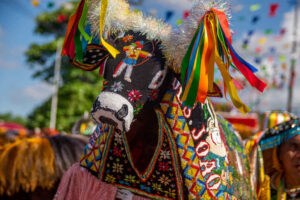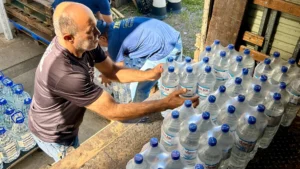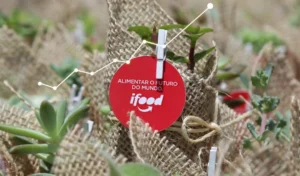Do you know the coffee you had this morning? Or the popular banana that gives energy to many Brazilians? There's a good chance these foods came from land cultivated by family farmers on small farms.
These producers are responsible for 48% of coffee and banana production in the country, and also plant 80% of our cassava, 69% of pineapples and 42% of the beans we produce, according to the latest Agricultural Census from IBGE (Brazilian Institute of Geography and Statistics), carried out in 2017.
With 3.9 million properties, family farmers represent 77% of Brazilian agricultural establishments, but their presence has been reducing. According to this census, in the decade from 2006 to 2016 the number of family agricultural establishments fell by 9.5% in the country.
“They have been facing many challenges, such as not having the same economic, fiscal and financial stimulus as large producers, in addition to issues of succession or even pricing policy consistent with the cost of production”, points out Aziz Constantino, co-founder of Organic Solidarity, a non-profit platform that brings organic food baskets to families in vulnerable situations and is an iFood partner (each R$ 50 of donations received on the app becomes a basket to be donated).
Organic in the basic basket
This was the solution found by this “social organization with a culture of startup” (as Aziz defines) not only to connect organic producers with those who need food most, but also to overcome the lack of recurring demand that threatens plans and finances in this segment.
“With the guarantee of purchasing the product, producers can better plan the harvest with less risk. In this sector, it is not difficult to see large buyers canceling orders and causing great losses to small farmers”, says Aziz.
For him, the importance of organic producers goes beyond the nutritional aspect. “Organic is not just a perspective of those who eat. It is a respect for the land and those who produce it. All the money donated to us, more than just feeding one side, generates income for these producers, who are the guardians of healthy eating”, he adds.
In two years of operation, Orgânico Solidário has already received R$ 4 million in donations and delivered more than 500 tons of food in five states (São Paulo, Santa Catarina, Rio de Janeiro, Paraná and Goiás). Deliveries are weekly, and each family receives 6 kg of organic food.
From the field to the restaurant kitchen
A startup Frexco, also an iFood partner in food delivery in nature, developed a business model that uses technology to connect small fruit and vegetable producers with restaurants and individuals in São Paulo. As it is close to hundreds of farmers in the Piedade (SP) region, the company takes care of logistics and takes production directly to customers.
The business was born out of a concern to value the work of small farmers, and it does this by improving their remuneration and ensuring demand for food. “In this chain, 30% of products, on average, are thrown away in distribution. In addition to the absurd waste, this increases the price of food at the end, but the producer does not receive this value”, explains Eduardo Tacla Pietraroia, co-founder of Frexco.
Following the thesis of farm to table (from field to table), the startup it eliminated intermediaries between producers and customers and took charge of transport logistics. “Producers harvest on the day of delivery and certainly of sale. Fair marketing allows them to plan production and have a more dignified life”, says Eduardo. “They make more money by changing the model.”
Another important factor, comments João Marcos Ferreira de Jesus, head relationship with Frexco producers, is that the model brings more confidence in the frequency of payments, always made on time. “Producers suffer a lot from the uncertainty of demand, and many complain about defaulting on agreements”, says João.
Frexco, created in 2019, today has a base of more than 400 producer contacts — of which 60, on average, are active — and 2,000 restaurants and 500 individuals. His big dream is to expand his operations across the country. “We want to solve this common pain for all small Brazilian producers”, says Eduardo.


